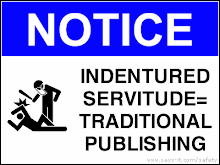Status: Writing Chapter 14 to Stories of the Dead Earth-Book 3: Jasper
Doing: Writing this blog; surfing the net; answering e-mails; working out
Watching: News Hour with Jim Leher
Listening to: "Addicted [Mushroom Dub]"; Nokturnal Mix Sessions by DJ Moda
Reading: Kushiel's Scion by Jacqueline Carey (Page 123)
TOPIC: CHARACTER CONFLICT
This is something which I posted to one of my groups last night:
I create conflict simply because I'm enamored by death and destruction. Macabre it may sound, but chaos, misery, and despair have always been constant companions in my life.
I've never known a true moment of peace in life, my days are consumed by worry about whether or not I'll have a place to live, food on the table, and the usual necessities which I find to be a comforting blanket of security.
But I also know that when conflict comes into my writing, I just don't add conflict to move the story along--filler as the case may be--but it comes at a critical point in the story arc.
Or it's used as a launch pad for the rest of the story--a key element in what's transpiring.
I use conflict to illustrate a, well, conflict for my characters; a dilemma, a moral incongruity--something that draws the reader into the book--not just skimming the pages and hoping for the best.
Some people adamantly believe that conflict is the only way you can keep someone riveted. And I'm like, "This is a novel, not a Hollywood-style shoot-em-up movie."
This is where the lines of common sense blur. No one really understands that conflict is just a part of the novel, not the whole enchillada.
It's much like the tide: Conflict ebbs and flows. You can't have it constantly crash, because it is draining and tiring on your target audience.
You have to give them time to recharge, relax, and recover. Hitting them incessantly with conflict is just going to cause them to put the book down.
This may not be what the big guns say, but from someone whose treated conflict as a second skin to better writing, you quickly learn that conflict has its place in the book. It's not the whole reason why the manuscript exists in the first place.
But in part...? It plays an important role. The trick is to keep it smooth and mellow. Yes, there is a time for when your character needs to make a critical judgment call, needs to shoot the bad guy, or needs to escape to fight another day, but you can't do that--if all you have is never ending conflict.
You don't just write a book to impress your fellow peeps. You write a book to build upon your foundation of knowledge and understanding of your craft.
Not what the industry lays out as irrefutable canon.
If you have an intimate awareness of what your literary pursuits are--and where they will go--then these parts of a novel (conflict included) will have their rightful place in your storyline.
Not your typical writer's blog.
Support your local author! ^_^
About Me

- Schuyler Thorpe
- Married 6 years. Have plenty of pets--as substitutes for the kids until the day they are born. Though I was born with cerebal palsy, I don't let that slow me down or stop me.